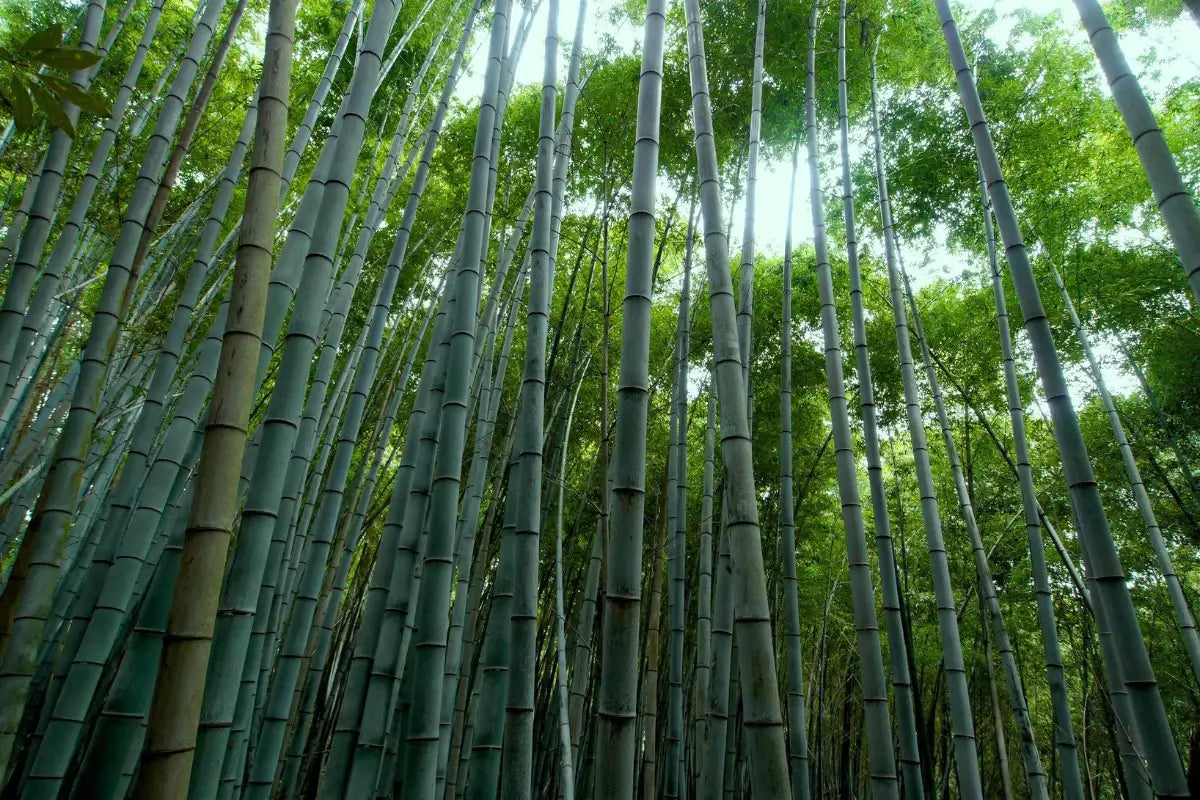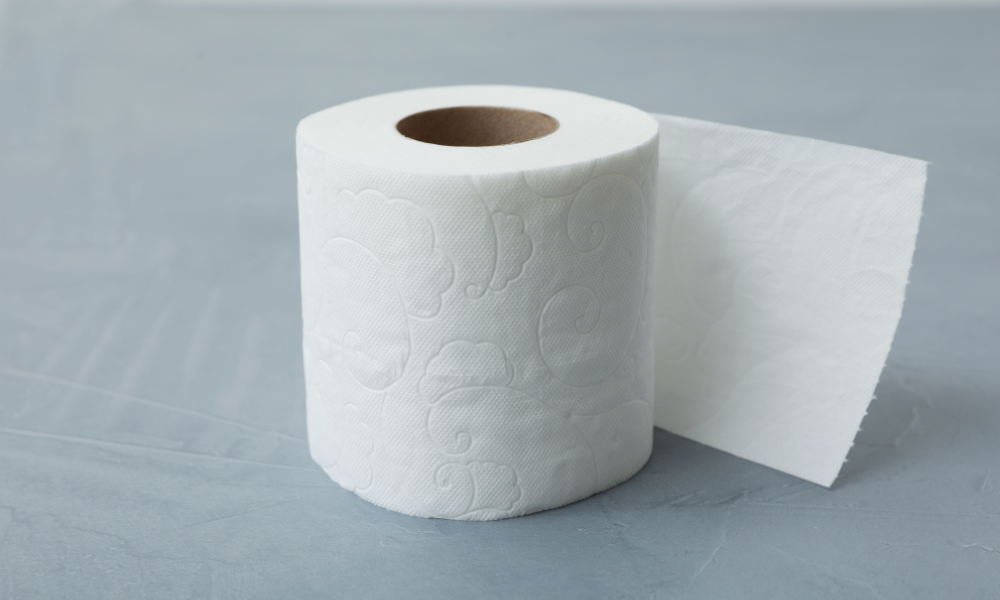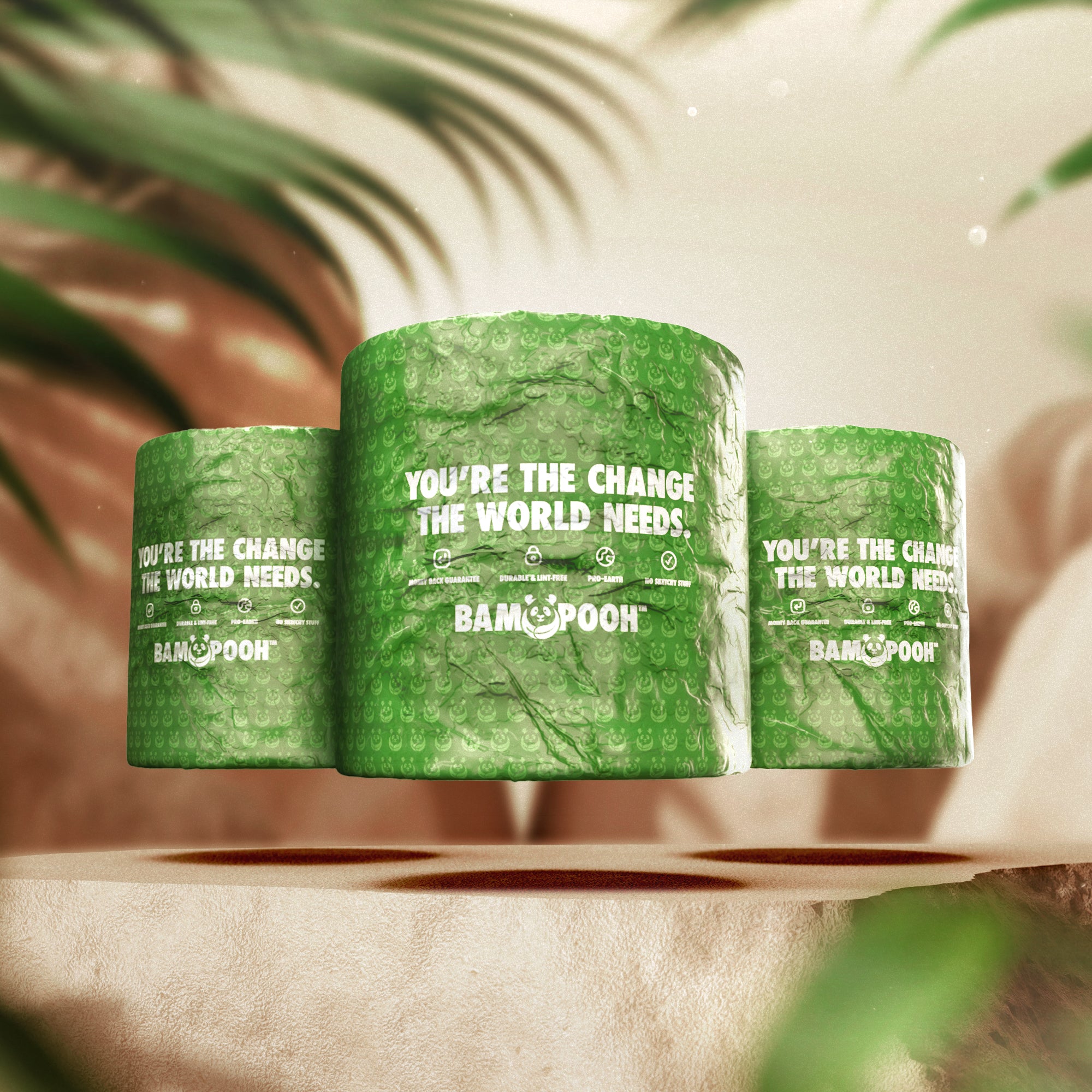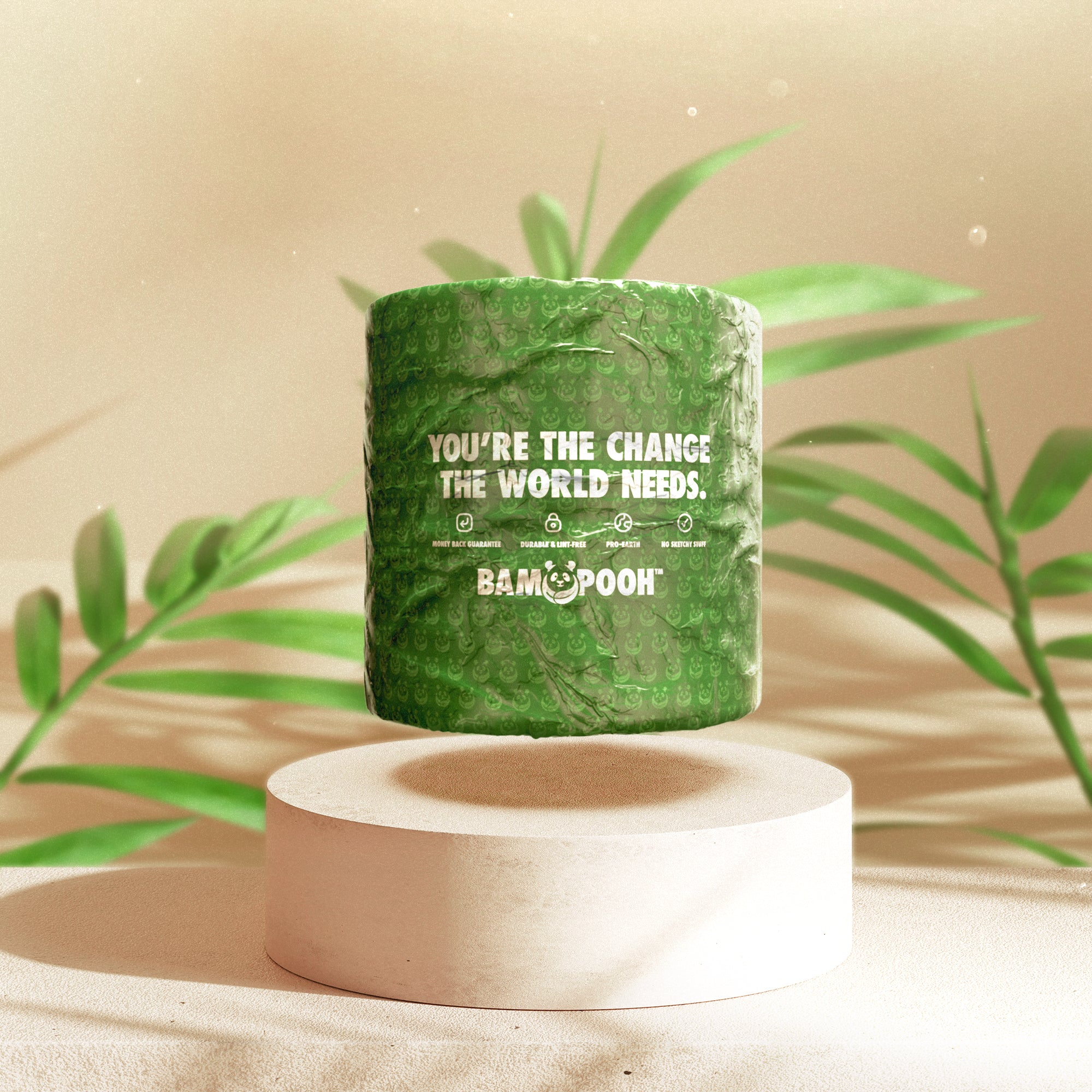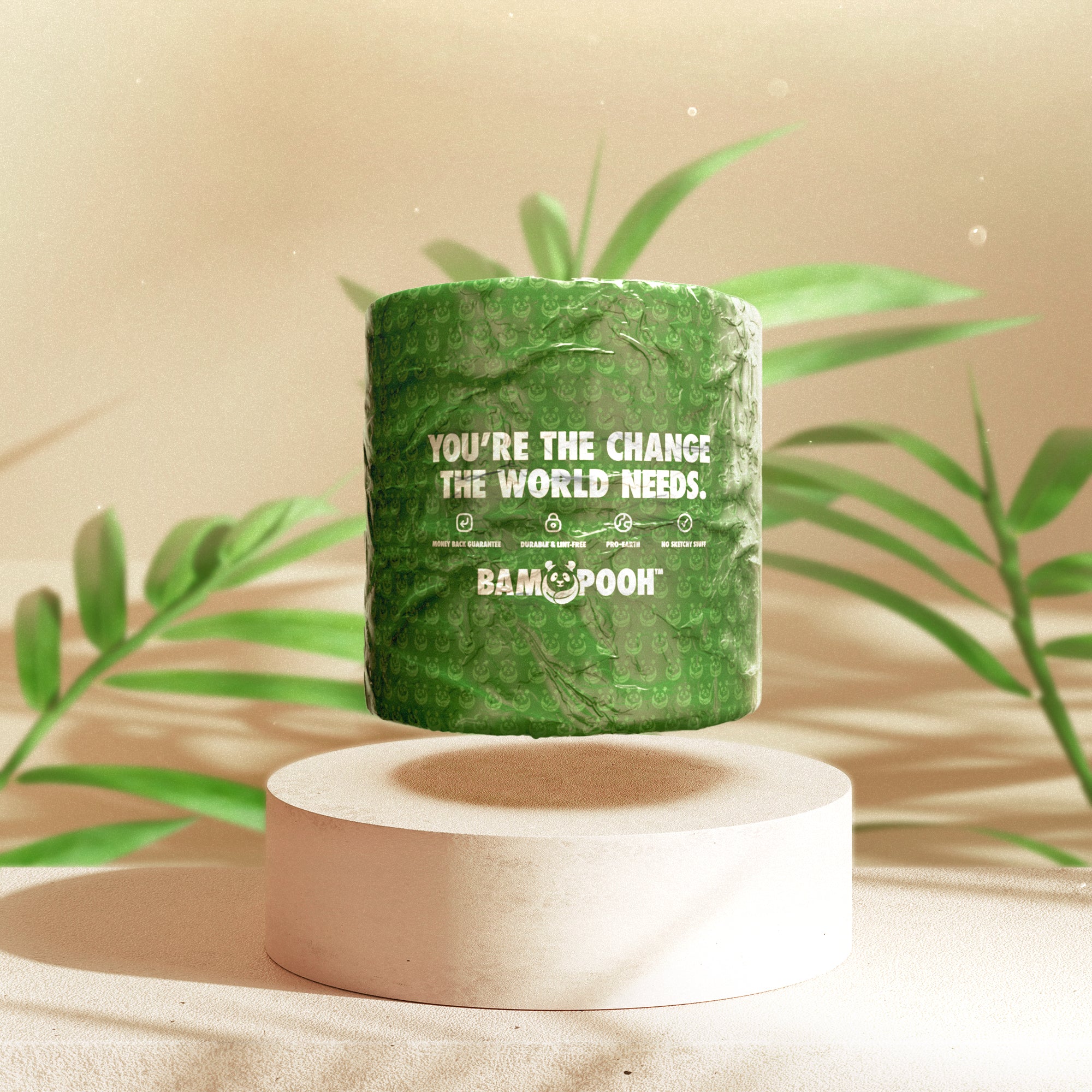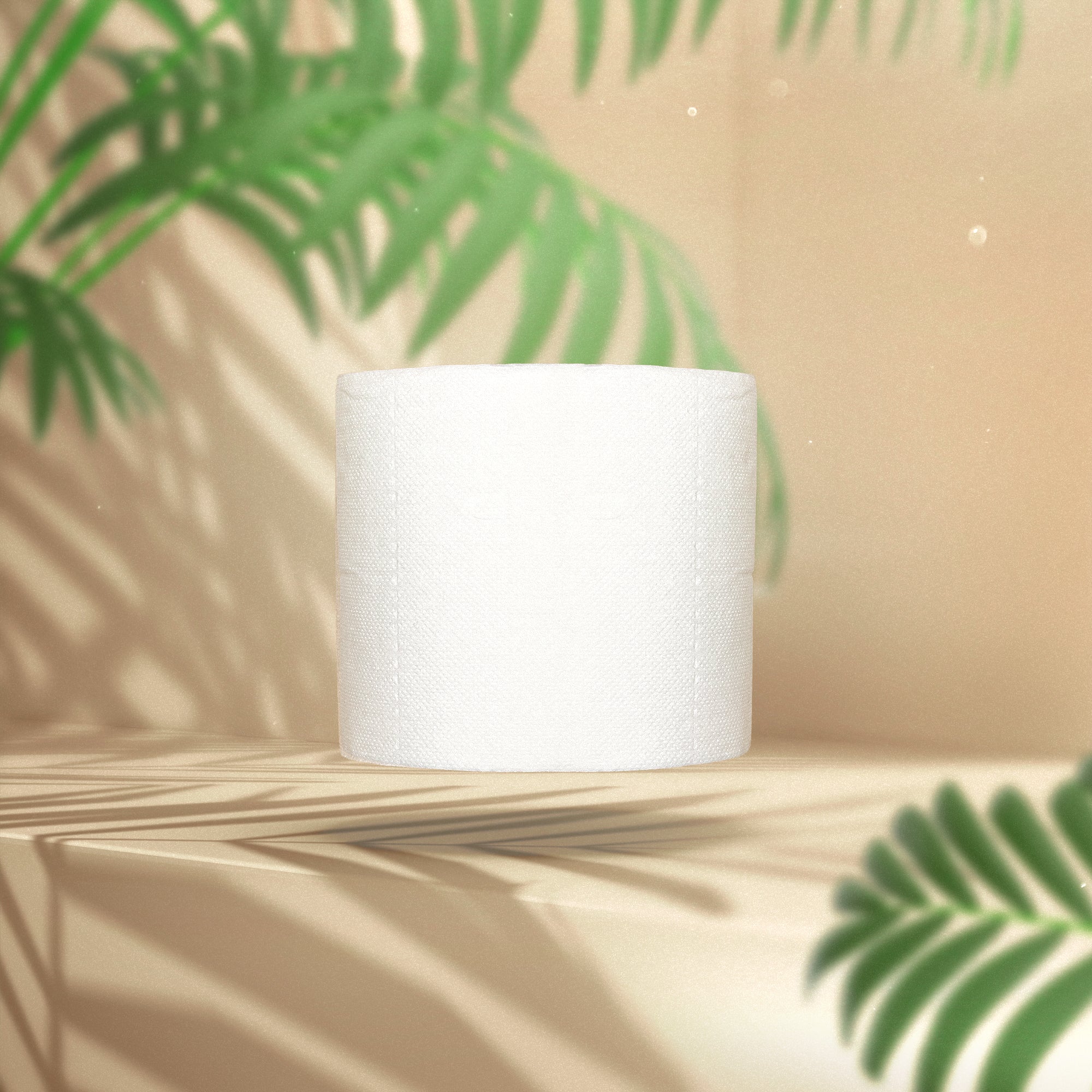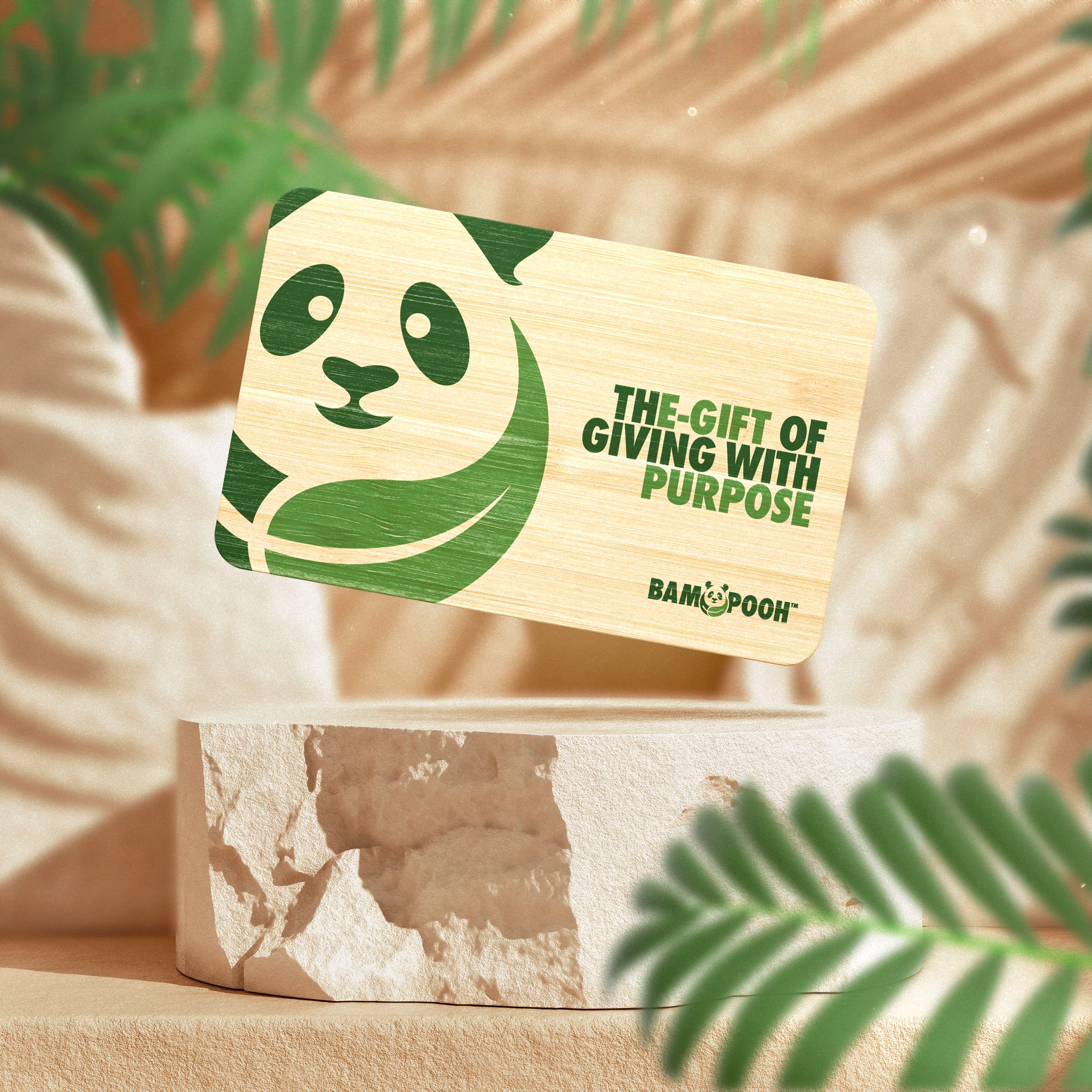Have you ever wondered about the environmental impact of toilet paper production? With deforestation and habitat destruction on the rise, it's time to consider making eco-friendly choices when it comes to our daily essentials. One option gaining popularity is bamboo toilet paper. But is it really better for the environment? In this blog, we'll dive deep into the environmental impact of traditional toilet paper production and how bamboo toilet paper can reduce deforestation and lower water and carbon footprints. We'll also explore the advantages of using bamboo as a sustainable resource and how it's produced.
Understanding the Environmental Impact of Toilet Paper Production
The manufacturing of traditional toilet paper has a significant impact on the environment. The production process uses virgin wood fiber, contributing to deforestation and habitat destruction. Additionally, harmful chemicals and bleaching agents are used in the manufacturing process. In contrast, bamboo toilet paper is a more sustainable option as bamboo grows faster and requires less water than trees. Choosing bamboo toilet paper can help reduce your carbon footprint and support eco-friendly practices.
Harmful Chemicals Used in Regular Toilet Paper Production
The production of traditional toilet paper involves using harmful chemicals, including chlorine and bleach. These agents have negative environmental impacts, such as polluting nearby water sources and harming aquatic life. Additionally, chemical treatment can create hazardous byproducts that are difficult to dispose of safely. In contrast, bamboo toilet paper is a more sustainable option that does not require harmful chemicals. Made from fast-growing bamboo plants that require less water and pesticides, it is a safer alternative for humans and the environment. Furthermore, its biodegradability means it will not contribute to landfill waste or harm wildlife like traditional toilet paper.
The Ecological Importance of Using Sustainable Toilet Paper
Using sustainable toilet paper is essential for protecting our planet's ecosystems. Traditional toilet paper production consumes many trees and water resources, leading to deforestation and habitat destruction. However, bamboo toilet paper offers an eco-friendly alternative that proliferates and requires less water to produce. Choosing bamboo toilet paper can help reduce your carbon footprint and support sustainable manufacturing practices. Additionally, bamboo toilet paper biodegrades faster than regular toilet paper, reducing landfill waste. By switching to sustainable toilet paper, we can all play a part in preserving our planet's natural resources for future generations.
How Much Toilet Paper Is Used Everyday?
Toilet paper is an essential item for personal hygiene, and it plays a vital role in maintaining good health. It is estimated that on average, a person uses around 100 rolls of toilet paper per year. According to data from Statista, in 2020, the global toilet paper market was worth about $31 billion. The toilet paper usage varies from region to region and country to country, but it is safe to say that each day, millions of people use toilet paper globally, making it one of the most consumed household items. The environmental impact of the production and disposal of toilet paper also remains a concern. Worldwide toilet paper consumption was responsible for 27,000 trees being cut down per day on average.
What is Bamboo Toilet Paper?
Bamboo toilet paper is becoming increasingly popular due to its eco-friendly qualities. Made from the fast-growing bamboo plant, this alternative is renewable and biodegradable, making it a sustainable option for those who want to reduce their environmental impact. In comparison to traditional toilet paper made from wood pulp, bamboo toilet paper requires less water and chemicals to produce, making it an excellent choice for environmentally conscious consumers.
Advantages of Bamboo as a Sustainable Resource
Bamboo is a versatile and sustainable resource with several advantages over traditional wood pulp. It grows quickly and requires less water and pesticides, making it a more environmentally friendly option for toilet paper production. Bamboo has natural antibacterial properties, making it ideal for hygiene products. Using bamboo in toilet paper production helps reduce deforestation and promotes sustainable practices while providing a soft and durable alternative to traditional toilet paper. By choosing bamboo toilet paper, consumers can positively impact the environment without sacrificing quality or comfort.
How Bamboo Toilet Paper is Produced
The production of bamboo toilet paper involves using the pulp of bamboo plants instead of trees. Bamboo is a fast-growing and sustainable crop, making it a more eco-friendly option for toilet paper production. The process involves breaking down the bamboo into pulp to turn it into toilet paper. Using bamboo toilet paper can be a small but impactful step towards a more sustainable lifestyle.
Bamboo Toilet Paper & Septic Tanks
Bamboo toilet paper is becoming increasingly popular among environmentally conscious consumers due to its highly sustainable nature. When it comes to the question of whether it is septic safe, the answer is a resounding yes. Bamboo toilet paper is highly soluble and easily breaks down in the water, making it very easy on septic systems. In addition, it is chemical-free, ensuring that it will not cause any harm to the environment or septic systems. Furthermore, bamboo is a highly renewable material source, making it ideal for use in the production of toilet paper. By opting for bamboo toilet paper, you can enjoy the peace of mind that comes with knowing that you are using a septic-safe and environmentally friendly-product.
Is Bamboo Toilet Paper Really Better for the Environment?
When it comes to sustainable alternatives for traditional toilet paper, bamboo has emerged as a popular option. While its benefits are often touted as eco-friendly and renewable, examining the full picture of its environmental impact is essential. Bamboo grows faster than trees and requires fewer resources, making it an attractive choice for sustainability. However, transportation and production methods can still contribute to carbon emissions and ecological damage. By considering the entire lifecycle of bamboo toilet paper, we can better understand whether it's truly a more environmentally conscious choice.
Conclusion
In conclusion, the production of regular toilet paper is detrimental to the environment as it involves the use of harmful chemicals and leads to deforestation and habitat destruction. On the other hand, bamboo toilet paper is a sustainable alternative with numerous advantages. It is produced using renewable resources, reduces carbon and water footprint, and promotes reforestation. So if you want to make an environmentally conscious decision when choosing your toilet paper, choose Bampooh bamboo toilet paper for your bamboo toilet paper needs.



